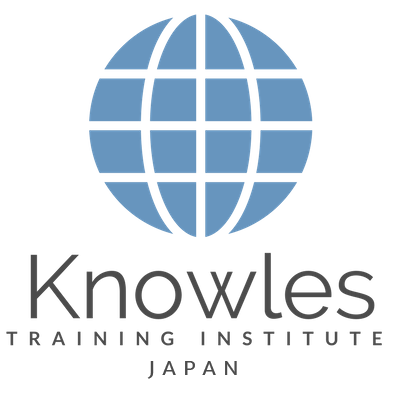Conflict Resolution Lunch Talk in Japan
Welcome to our Conflict Resolution Lunch Talk in Japan, where we delve into effective strategies and techniques for managing and resolving conflicts in the workplace. In Japan’s dynamic corporate environment, conflicts can arise due to differences in opinions, personalities, or work styles, impacting team morale and productivity. This session aims to equip participants with the skills and insights needed to navigate conflicts constructively, foster collaboration, and maintain positive working relationships.
In today’s fast-paced and interconnected workplace, the ability to effectively manage and resolve conflicts is essential for maintaining a healthy and productive work environment. This Lunch Talk provides participants with practical tools and approaches to address conflicts proactively, communicate assertively, and find mutually beneficial solutions. By fostering a culture of open communication and conflict resolution, organizations can enhance team dynamics, improve decision-making, and drive greater success in Japan’s competitive business landscape.
Talk Objectives:
- Understanding Conflict Dynamics: Explore the nature and causes of conflicts in the workplace, including differences in goals, values, communication styles, and personality clashes. Understand the impact of unresolved conflicts on team dynamics, productivity, and morale, and recognize the importance of addressing conflicts early and constructively.
- Developing Conflict Resolution Skills: Enhance participants’ conflict resolution skills by introducing proven techniques and frameworks for managing conflicts effectively. Explore approaches such as active listening, empathy, reframing, and problem-solving to facilitate constructive dialogue and find mutually acceptable solutions.
- Promoting Open Communication: Foster a culture of open communication and transparency to prevent misunderstandings and conflicts from escalating. Encourage team members to express their opinions and concerns openly, listen actively to others’ perspectives, and seek clarification when needed to promote understanding and empathy.
- Managing Emotions in Conflict: Develop strategies for managing emotions during conflicts, such as remaining calm, maintaining professionalism, and avoiding reactive or defensive responses. Explore techniques for self-regulation, such as deep breathing, mindfulness, and taking breaks to de-escalate tensions and approach conflicts with a clear and rational mindset.
- Building Trust and Rapport: Cultivate trust and rapport among team members to create a supportive and collaborative work environment. Encourage open and honest communication, demonstrate respect for diverse viewpoints, and build relationships based on mutual respect, empathy, and integrity.
- Clarifying Expectations and Boundaries: Clarify expectations and boundaries to prevent conflicts stemming from misunderstandings or unclear guidelines. Establish clear roles, responsibilities, and processes for decision-making, and communicate expectations effectively to ensure alignment and accountability.
- Seeking Win-Win Solutions: Encourage a problem-solving approach to conflict resolution that seeks win-win solutions benefiting all parties involved. Explore techniques such as collaborative problem-solving, compromise, and negotiation to find creative solutions that address underlying concerns and interests.
- Managing Difficult Conversations: Equip participants with the skills and confidence to engage in difficult conversations with tact, empathy, and assertiveness. Provide guidelines for initiating and navigating challenging discussions, managing resistance or defensiveness, and finding common ground to resolve conflicts constructively.
- Resolving Conflicts Collaboratively: Facilitate collaborative conflict resolution processes, such as mediation or facilitated dialogue, to address complex or entrenched conflicts. Provide tools and techniques for facilitating constructive dialogue, managing power dynamics, and reaching consensus-based solutions through mutual understanding and compromise.
- Fostering a Culture of Conflict Resolution: Foster a culture of conflict resolution and continuous improvement by providing training, resources, and support for employees to develop their conflict resolution skills. Encourage the use of constructive feedback, conflict resolution workshops, and team-building activities to strengthen relationships and promote a positive and productive work environment.
The Conflict Resolution Lunch Talk has equipped participants with the knowledge, skills, and tools needed to manage conflicts effectively, foster collaboration, and maintain positive working relationships in Japan’s corporate environment. By embracing open communication, empathy, and problem-solving, organizations can transform conflicts into opportunities for growth, innovation, and team cohesion. Together, let’s build workplaces where conflicts are addressed constructively, and everyone feels valued, heard, and respected.
Ready to enhance your conflict resolution skills and create a more harmonious and productive work environment in Japan? Start by applying the strategies and techniques discussed in this Lunch Talk to your daily interactions and team dynamics. Practice active listening, empathy, and problem-solving, and seek opportunities to address conflicts proactively and constructively. By investing in conflict resolution skills and fostering a culture of collaboration and respect, you can contribute to a healthier, happier, and more successful workplace for all.
More Information:
Duration: 60 minutes
Fees: $1299.97 USD 679.97
For more information please contact us at: contact@knowlesti.co.jp
If you would like to register for this talk, fill out the registration form below.

